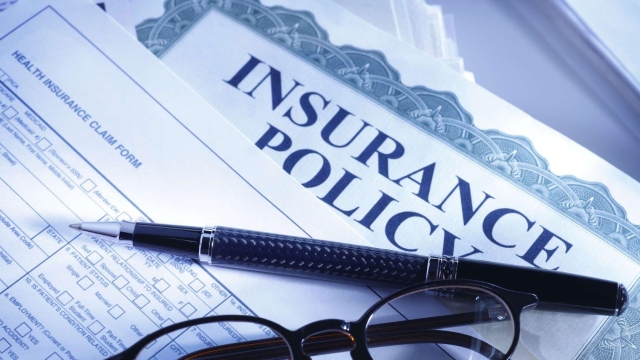Are you a small business owner looking for ways to protect your venture from unforeseen challenges? One crucial aspect to consider is small business insurance. While insurance can sometimes feel like a complex and mysterious world, it is an essential tool for safeguarding your business and giving you peace of mind.
From liability issues to property damage, small business insurance offers coverage that can help mitigate risks and protect your assets. Whether you operate a brick-and-mortar store, an online business, or even a home-based venture, having the right insurance can make all the difference in ensuring the longevity and success of your enterprise.
In this comprehensive guide, we will unravel the mysteries of small business insurance, exploring different types of coverage available and helping you navigate the often confusing landscape of insurance policies. Ready to dive in and discover how to best protect your small business? Let’s embark on this journey together and empower you with the knowledge and understanding you need to make informed decisions about insurance coverage.
Understanding Small Business Insurance
Small business insurance plays a crucial role in safeguarding your business against unforeseen risks and potential financial loss. As a business owner, it’s essential to understand the basics of small business insurance and how it can protect your company’s assets and interests.
At its core, small business insurance provides coverage for various aspects of your business, including property damage, liability claims, and employee injuries. By securing the right insurance policies, you can mitigate the risks that come with operating a business and ensure its long-term stability.
One key aspect of small business insurance is property coverage. This type of insurance protects your business property, such as buildings, equipment, and inventory, in case of damage or loss due to events like fire, vandalism, or theft. With property coverage, you can focus on growing your business without worrying about the financial repercussions of unexpected incidents.
Another important aspect is liability insurance. This coverage helps protect your business from legal claims that may arise from customers, clients, or third parties. For instance, if a customer gets injured on your premises and files a lawsuit, liability insurance can cover legal fees, medical expenses, and potential settlements. It’s crucial to carefully consider the liability risks your business may face and obtain appropriate coverage to shield yourself from potential lawsuits.
Additionally, small business insurance may include coverage for employee-related risks. This can include workers’ compensation insurance, which provides benefits to employees in the event of work-related injuries or illnesses. By having this insurance in place, you fulfill your legal obligations while ensuring that your employees are protected, which can lead to a more positive work environment.
Understanding these fundamental aspects of small business insurance is vital for the success and longevity of your business. By comprehending the different types of coverage available and tailoring them to your specific business needs, you can ensure that your business is adequately protected against any potential risks or challenges that may arise.
Types of Small Business Insurance
General Liability Insurance:
General liability insurance is a crucial type of coverage for small businesses. It provides protection against claims related to bodily injury, property damage, and personal injury that may occur on your business premises or as a result of your business operations. Having general liability insurance can help protect your small business from expensive lawsuits and legal liabilities.Property Insurance:
Commercial Auto Insurance
Property insurance is designed to safeguard your small business against financial loss resulting from damage or loss of your physical assets. This includes protection for your buildings, equipment, inventory, and other property owned by your business. With property insurance, you can have peace of mind knowing that you have financial coverage in case of unforeseen events such as fire, theft, or natural disasters.Commercial Auto Insurance:
If your small business uses vehicles for business purposes, having commercial auto insurance is essential. It provides coverage for vehicles owned or leased by your business and protects against damages, accidents, and other liabilities. Whether you have a single company car or a fleet of vehicles, commercial auto insurance ensures that your small business is adequately protected on the road.

Remember, these are just a few types of small business insurance available to protect your business. Each type of coverage can be tailored to meet your specific needs and industry requirements. It’s crucial to carefully evaluate your risks and consult with an insurance professional to determine the right insurance coverage for your small business.
Choosing the Right Small Business Insurance
When it comes to protecting your small business, choosing the right insurance is crucial. With the wide range of options available, finding the policy that best suits your needs can seem like a daunting task. However, with careful consideration and evaluation, you can make an informed decision.
Firstly, it’s important to assess the specific risks associated with your business. Each industry has unique challenges, and understanding these risks will help you determine which areas require coverage. For example, if you run a delivery service, you may want to prioritize commercial auto insurance to protect your vehicles and drivers on the road. On the other hand, if you operate a retail store, property and liability insurance might be more essential.
Secondly, consider the financial implications of different insurance policies. While it can be tempting to opt for the cheapest option available, it’s crucial to evaluate the coverage provided and any limitations or exclusions. Assessing your budget and determining the potential financial impact of a claim will guide you towards the right policy.
Lastly, don’t forget the importance of reputation and reliability. Research different insurance providers and read customer reviews to gauge their track record in terms of claims processing and overall customer satisfaction. While price matters, having a responsive and supportive insurer is invaluable when it comes to navigating the often complex world of insurance.
By carefully considering the risks unique to your business, evaluating the financial impact, and choosing a reputable insurance provider, you can confidently select the small business insurance that will safeguard your venture and provide you with peace of mind.


